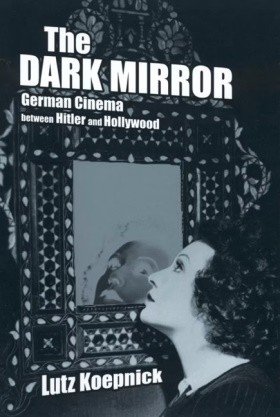12. Giuliana Muscio, Hollywood’ s New Deal (Philadelphia: Temple University Press, 1996), 74.
13. Thomas Cripps, Hollywood’ s High Noon: Moviemaking and Society before Television (Baltimore: Johns Hopkins University Press, 1997), 112.
14. Horak, Anti-Nazi-Filme, 35–36.
15. Anthony Heilbut, Exiled in Paradise: German Refugee Artists and Intellectuals in America, from the 1930s to the Present (New York: Viking Press, 1983), 71.
10-C2205-END 8/17/02 3:39 PM Page 295
Notes to Pages 144 –152
/
295
16. Qtd. in Horak, Anti-Nazi-Filme, xiii.
17. Hans Kafka, “Hollywood Calling,” Der Aufbau, September 3, 1943, 15.
18. Patrick McGilligan, Fritz Lang: The Nature of the Beast (New York: St.
Martin’s, 1997), 296 –298.
19. On Brecht’s involvement in the making of Hangmen Also Die see also the well-researched novel by Jürgen Alberts, Hitler in Hollywood oder: Die Suche nach dem Idealscript (Göttingen: Steidl, 1997).
20. Bertolt Brecht, Arbeitsjournal, ed. Werner Hecht (Frankfurt /M.: Suhrkamp, 1973), 2:530.
21. Gruber, however, is of course the film’s most interesting character, as Tom Gunning has pointed out in The Films of Fritz Lang: Allegories of Vision and Modernity (London: BFI, 2000), 294.
22. Edward W. Said, Representations of the Intellectual (New York: Vintage Books, 1996), 49.
23. Heilbut, Exiled in Paradise, 59.
24. Important theoretical studies and textbook accounts of classical Hollywood film music include Mark Evans, Soundtrack: The Music of the Movies (New York: Hopkinson and Blake, 1975); Claudia Gorbman, Unheard Melodies: Narrative Film Music (Bloomington: Indiana University Press, 1987); Caryl Flinn, Strains of Utopia: Gender, Nostalgia, and Hollywood Film Music (Princeton: Princeton University Press, 1992); Kathryn Kalinak, Settling the Score: Music and the Classical Hollywood Film (Madison: University of Wisconsin Press, 1992); Roy Prendergast, Film Music: A Neglected Art (New York: Norton, 1992); Royal S. Brown, Overtones and Undertones: Reading Film Music (Berkeley: University of California Press, 1994); George Burt, The Art of Film Music (Boston: Northeastern University Press, 1994). On what superseded the dominant paradigm in the course of the 1950s see Jeff Smith, The Sounds of Commerce: Marketing Popular Music (New York: Columbia University Press, 1998).
25. Gorbman, Unheard Melodies, 58.
26. Flinn, Strains of Utopia, 88.
27. W. Stephen Bush, “Giving Musical Expression to the Drama,” Moving Picture World, August 12, 1911, 354; qtd. in Flinn, Strains of Utopia, 15.
28. Flinn, Strains of Utopia, 14.
29. Michael Chanan, Musica Practica: The Social Practice of Western Music from Gregorian Chant to Postmodernism (London: Verso, 1994), 251.
30. Flinn, Strains of Utopia, 20 –23.
31. For more on Korngold’s pre-Hollywood career see Brenda Carroll, The Last Prodigy: A Biography of Erich Wolfgang Korngold (Portland, Ore.: Amadeus Press, 1997); Jessica Duchen, Erich Wolfgang Korngold (London: Phaidon Press, 1996); Rudolph Stephan Hoffmann, Erich Wolfgang Korngold (Vienna: Stephenson, 1922); and Julius Korngold, Die Korngolds in Wien: Der Musik-kritiker und das Wunderkind— Aufzeichungen von Julius Korngold (Zurich: M. und T. Verlag, 1991).
32. Duchen, Korngold, 181.
10-C2205-END 8/17/02 3:39 PM Page 296
296
/
Notes to Pages 153 –165
33. “It’s on the Sound Track,” Overture (November 1946); qtd. in Duchen, Korngold, 180.
34. Thomas Schatz, The Genius of the System: Hollywood Filmmaking in the Studio Era (New York: Pantheon Books, 1988) .
35. Theodor Adorno and Hanns Eisler, Composing for the Films (London: Athlone Press, 1994), 61.
36. Ibid., lii.
37. Lewis Jacobs, The Rise of American Film, new ed. (New York: Teachers College Press, 1967), 296.
38. Max Weber, The Protestant Ethic and the Spirit of Capitalism, trans.
Talcott Parsons (New York: Scribner’s Sons, 1958), 182.
39. Richard B. Jewell, “How Howard Hawks Brought Baby Up: An Apolo-gia for the Studio System,” in The Studio System, ed. Janet Staiger (New Brunswick, N.J.: Rutgers University Press, 1995), 40.
40. Schatz, Genius of the System, 8 –9.
41. Thomas Schatz, Boom and Bust: The American Cinema in the 1940s (New York: Scribner’s Sons, 1997), 83.

























